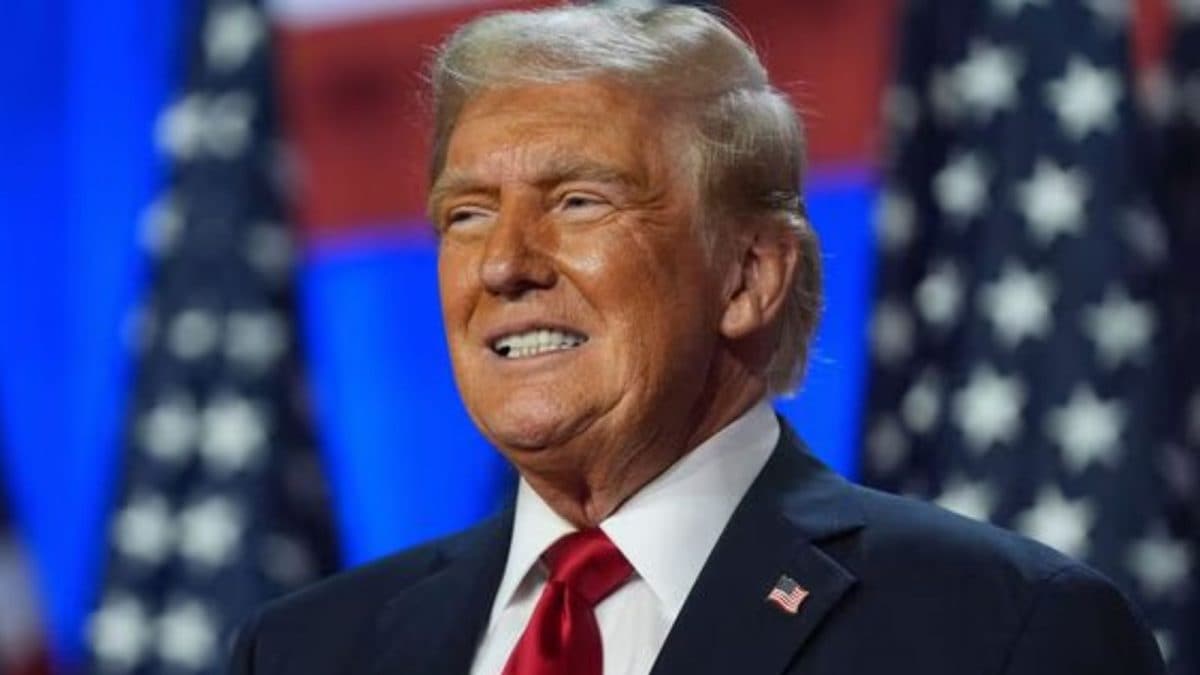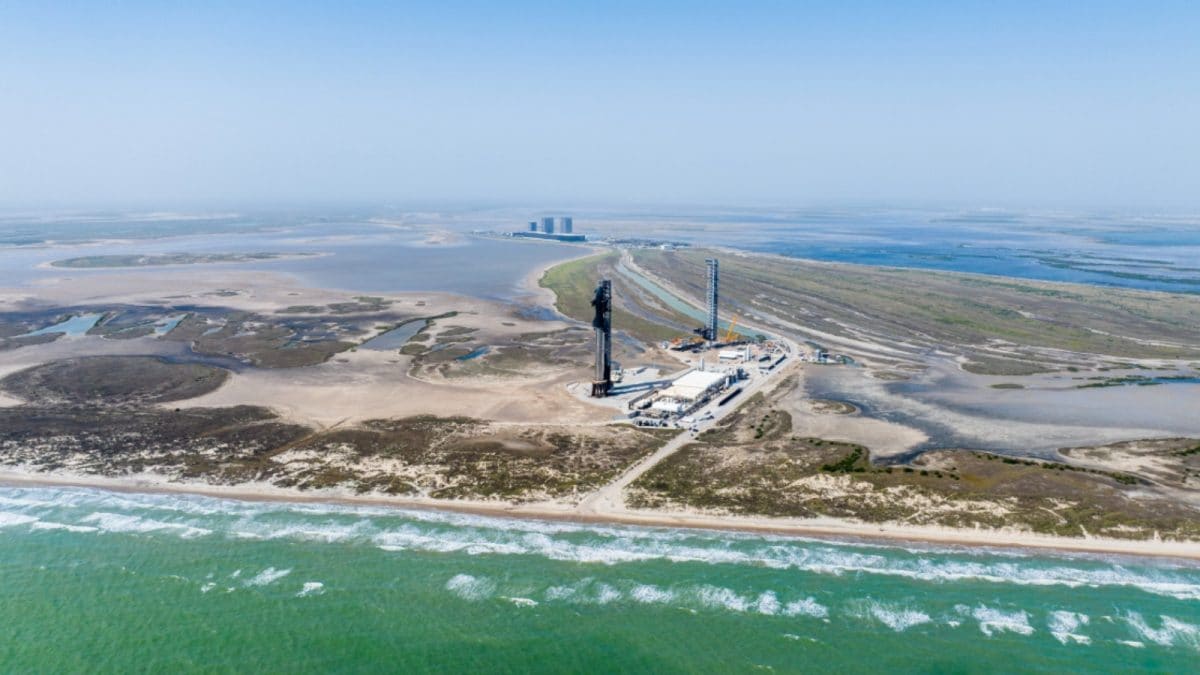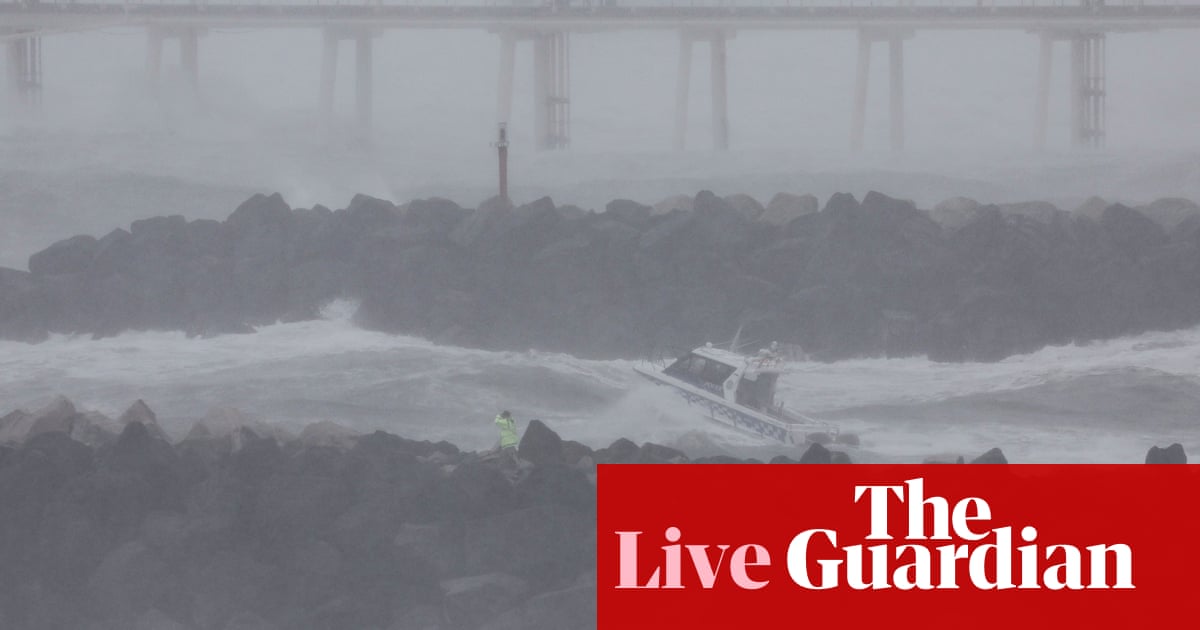Starmer will keep saying Truss crashed economy, even though she's sent legal letter claiming it's libellous, No 10 says
Downing Street has signalled that Keir Starmer plans to ignore Liz Truss’s legal letter saying he should stop saying she crashed the economy because that, she claims, is untrue and libellous. (See 11.58am.)
Asked about the letter at the morning lobby briefing, the PM’s spokesperson said:
I am not sure I have seen the detail of the letter, but from what I can my gather, I don’t think the prime minister is the only person in the country who shares the view in relation to the previous government’s handling of the economy.
I guess the question is whether she will be writing to millions of people up and down the country as well, who felt her economic record which pushed their mortgage bills up.
Here is Eleni Courea’s story about the letter.
UPDATE: The PM’s spokesperson also said:
You’ve got the prime minister’s language, which he absolutely stands by in relation to the previous government’s record.
And you don’t have to hear it from the prime minister. I think you could ask people up and down the country of the impact of previous economic management on mortgages, on inflation.
Asked whether Starmer had any plans to moderate his language about Truss, the spokesperson replied: “No.”
Key events Show key events only Please turn on JavaScript to use this feature
Former Tory chancellor Philip Hammond says Reeves should not cancel China trip - after CCHQ says she should
The Conservative party is saying that Rachel Reeves should cancel her trip to China because of the turmoil in the bond market. (See 12.10pm.)
But Philip Hammond, who was chancellor when Theresa May was PM and who is now a Tory peer, told the World at One that Reeves should press on with the visit. He said:
I wouldn’t personally recommend the chancellor to cancel her trip to China. I think the trip to China is important, and I think this can wait until she gets back next week.
But I do think she will need to reassure parliament about what is going on when she does get back next week.
Asked who worried the chancellor should be, he said:
I think it’s right that we don’t get obsessed with single day movements in the markets, because there are a lot of short-term drivers in the markets as well.
But it’s clear that, on a medium term trajectory, the markets are concerned about the sustainability of the fiscal position in the UK and about the robustness of the UK economy.
If he was still chancellor, he would be “worried about the trend of what is happening”, he said.
Hammond said some of what was happening was due to trends in the global economy. But he says businesses in Britain were also expecting the government to take measures that would “provide a visible and clear boost to economic growth”, and they had not happened. As a result business was “confused, angry, disrupted in terms of what the direction of travel is”, he said. He went on:
I think we now need a message from the chancellor that she understands the concerns of business and that she is going to put business investment and economic growth at the very front of her agenda.
Liz Truss has responded to No 10, claiming she does not believe that Keir Starmer will repeat his claim she crashed his economy “because he knows it’s a lie” – even though Downing Street said Starmer stands by the assessment. (See 12.24pm.) She posted this on social media, commenting on a tweet summing up the No 10 line.
I know Keir Starmer won’t repeat his allegations that I crashed the economy because he knows it’s a lie.
Why Truss would fail if she tried suing Starmer for libel, and why her legal letter should be seen as Slapp
An academic who’s an expert in media law has been in touch to give me his assessment of Liz Truss’s cease and desist letter. (See 11.58am.) He does not want to publish his name, but he says that if Truss ever did try to sue Keir Starmer for libel, she would not stand a chance.
He also describes the letter as a classic example of a Slapp.
He says:
The letter sent by Truss’s lawyers to Starmer does not explicitly threaten to sue for libel, but the language in which it is couched makes such a threat implicit. However, a libel claim in these circumstances would certainly fail.
Under section 4 of the Defamation Act 2013 - enacted, of course, under a Tory-led coalition government - there is a defence for statements made with a reasonable belief that making them is in the public interest. Political debate is a classic example of public interest speech, and the courts will steer clear of evaluating its content. It does not matter whether, on a technical economic analysis, Truss did in fact ‘crash the economy’. What matters is the fact that there is a legitimate, robust political debate around whether she did that. Starmer has weighed in on one side of that debate, and she has been free to put the other side (which she has, vigorously).
All the court needs to find is that: (a) Starmer’s comments were on a matter of public interest, and (b) Starmer, in making his comments, reasonably believed that communicating them to the public at large was in the public interest.
‘Public interest’ has never been defined at law, but in the context of the cut and thrust of general election debate, and political debate more generally, a court would undoubtedly find in Starmer’s favour on this, because it would not endorse setting a precedent that risked shutting down debate on the economy between leading politicians.
Incidentally, since there has been much debate around so-called Slapps (strategic lawsuits against public participation), much of the ostensible concern about which has been raised by Conservative politicians in recent years (as well as outlets such as the Guardian), it is perhaps worth pointing out that Truss’s letter is a textbook example of a Slapp. It implicitly threatens a totally unmeritorious legal claim in a bid to cause the prime minister to stop making statements on a matter of public debate. It is a strategic attempt to silence political criticism - something that is, quite nakedly, a Slapp. At this point, there is no specific anti-Slapp law in the UK, although existing civil procedure mechanisms would in all likelihood prevent such a claim reaching trial.
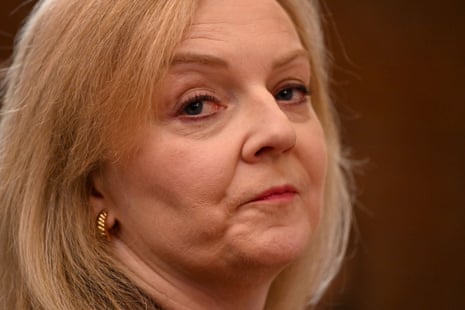
Lammy says government's definition of Islamophobia 'still be determined', in response to claim Labour's version too wide
During his interview round this mornig David Lammy, the foreign secretary, rejected claims that the government is applying a definition of Islamophobia that says people should not talk about Muslim grooming gangs.
Kemi Badenoch raised this issued at PMQs yesterday. She told Keir Starmer:
The Labour party has adopted the APPG [all-party parliamentay group] definition of “Islamophobia”. The same APPG report said that talking about sex groomers was an example of Islamophobia. This is exactly why people are scared to tell the truth.
And today the Times is running a story saying the APPG definition that Badenoch was talking about “put ‘grooming gangs’ in inverted commas and suggested that using the term in relation to Muslims was racist”.
Badenoch was referring to the All-Party Parliamentary Group on British Muslim, which put out a statement yesterday saying Badenoch misrepresented what it was saying.
The APPG summarises Islamophobia as “rooted in racism and is a type of racism that targets expressions of Muslimness or perceived Muslimness”. In a report published in 2018, it does not say all references to grooming gangs are Islamophobic. But it says it would be Islamophobic to talk about Muslim grooming gangs in circumstances where, if the perpetrators were Christian, that would not be mentioned.
And, as an example of Islamphobia, it says:
Using the symbols and images associated with classic Islamophobia (e.g. Muhammed being a paedophile, claims of Muslims spreading Islam by the sword or subjugating minority groups under their rule) to characterise Muslims as being ‘sex groomers’, inherently violent or incapable of living harmoniously in plural societies.
Asked about this in interviews this morning, Lammy said the Labour party had accepted the APPG’s definition of Islamophobia. But he said the government had not adopted that definition, and the government’s definition was “still being determined”.
And he told Times Radio:
That’s a process that’s underway and we’ve got to wait to see where that comes out.
But I’m quite sure that that process will not lead to anything that is an impediment in going after paedophiles, whatever their background, religious background, ethnicity, or the colour of their skin. Very, very clear on that.

Starmer will keep saying Truss crashed economy, even though she's sent legal letter claiming it's libellous, No 10 says
Downing Street has signalled that Keir Starmer plans to ignore Liz Truss’s legal letter saying he should stop saying she crashed the economy because that, she claims, is untrue and libellous. (See 11.58am.)
Asked about the letter at the morning lobby briefing, the PM’s spokesperson said:
I am not sure I have seen the detail of the letter, but from what I can my gather, I don’t think the prime minister is the only person in the country who shares the view in relation to the previous government’s handling of the economy.
I guess the question is whether she will be writing to millions of people up and down the country as well, who felt her economic record which pushed their mortgage bills up.
Here is Eleni Courea’s story about the letter.
UPDATE: The PM’s spokesperson also said:
You’ve got the prime minister’s language, which he absolutely stands by in relation to the previous government’s record.
And you don’t have to hear it from the prime minister. I think you could ask people up and down the country of the impact of previous economic management on mortgages, on inflation.
Asked whether Starmer had any plans to moderate his language about Truss, the spokesperson replied: “No.”
During the urgent question on borrowing, the Lib Dem MP Max Wilkinson asked Darren Jones, chief secretary to the Treasury, about Liz Truss’s “cease and desist” letter (see 11.58am) and joked that Jones “might want to take advantage of parliamentary privilege” if he wanted to talk about the mini-budget.
Jones replied:
It was a direct connection between the hubris and the ego and the lack of focus on working people that Conservative ministers took when they were in government last time that ruined the lives of people across this country.
I say that today, I’ll say every single day because the British people must never forget the recklessness of the Conservative party.
Tories says Reeves should cancel China trip because of bond market turmoil
The Conservatives are now saying Rachel Reeves, the chancellor, should cancel her trip to China because of the rise in government borrowing costs. In a statement Mel Stride, the shadow chancellor, said:
Today Labour has been forced to make a panicked attempt to reassure the markets on the economic mess of their own making.
But Rachel Reeves is missing in action - instead wheeling out her deputy to defend her loss of control of the public finances.
The chancellor should now cancel her travel and focus on this country instead.
Graeme Wearden has more from what Darren Jones said on this in response to the UQ on the business live blog.
Truss sends legal letter to Starmer saying he should stop saying she crashed economy because it's defamatory
Given what Darren Jones was saying during the UQ on borrowing costs (see 10.51am), Liz Truss’s lawyers might be writing another letter. As the Telegraph reports, the former Tory PM has “sent a cease and desist letter to Keir Starmer demanding that he stops claiming she crashed the economy”.
Truss says that the claim is untrue and defamatory. She does not explicitly threaten to sue Starmer for libel (perhaps because she realises that such an action would have very little chance of success). But she does ask him to stop making the claim.
In their story Ben Riley-Smith and Tim Wallace explain:
The lawyers even suggest that the assertions from Sir Keir before the July general election [that Truss did crash the economy] contributed towards Ms Truss losing her battle to be re-elected as the MP for South West Norfolk.
At the core of the row are the weeks after Ms Truss’s so-called mini-Budget in September 2022, when financial markets reacted negatively to its major tax cuts funded by borrowing.
The legal letter argues that the financial movements did not amount to an economic crash, since there was no fall in economic output or rise in unemployment – the usual signifiers of such an event.
The lawyers back up their claim by quote a report from Andrew Lilico, a rightwing economist who advised Truss when she was running for the Tory leadership. The report says the “financial volatility” of 2022 did not amount to the economy crashing, and that the mini-budget was only one component of that volatility anyway.
The Telegraph journalist Allison Pearson, who has interviewed Lilico on a podcast, has posted the letter on X.
Hospital waiting list figure for England at lowest level for 18 months, figures show
NHS England has published its monthly performance figures. Here are the main points, from PA Media.
The waiting list for routine hospital treatment in England has fallen to its lowest level for 18 months. PA says:
An estimated 7.48m treatments were waiting to be carried out at the end of November, relating to 6.28m patients – down from 7.54m treatments and 6.34m patients at the end of October. These are the lowest figures since May 2023. The list hit a record high in September 2023, with 7.77m treatments and 6.50m patients.
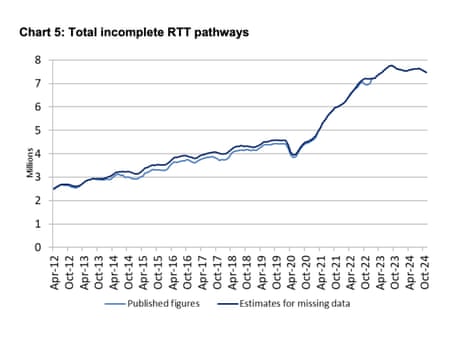
A total of 221,889 people in England had been waiting more than 52 weeks to start routine hospital treatment at the end of November, down from 234,885 at the end of October and the lowest number since November 2020. PA says the previous government and NHS England set the ambition of eliminating all waits of more than a year by March 2025.
The NHS situation report also shows that 42.2% of patients arriving by ambulance at hospitals in England last week waited at least 30 minutes to be handed over to A&E teams – the highest figure so far this winter. PA says this is up from 32.1% the previous week, and higher than in the equivalent week last winter, when the proportion stood at 30.9%.
Some 21.3% of ambulance handovers last week, or 19,554 patients, were delayed by more than an hour, again, the highest figure so far this winter, up week-on-week from 12.9% and higher than this point a year ago (13.4%), PA says.
The number of people waiting more than 12 hours in A&E departments in England from a decision to admit to actually being admitted stood at 54,207 in December, up from 45,791 in November. PA says the record high for a calendar month is 54,573, which occurred in December 2022. Some 71.1% of patients in England were seen within four hours in A&Es last month, down from 72.1% in November.
Half of England’s county councils due to hold elections reportedly planning to ask for delay
Half of the county councils due to have elections in England this spring could ask to have them postponed, Eleni Courea and Jessica Murray report.
Meg Hillier, the Labour chair of the Commons Treasury committee, asked Jones if Reeves would be making a “fiscal statement” to MPs in March, when the next OBR forecast is due.
Jones said, between the OBR update in March and the spending review in June, the Commons would be “updated in the normal way”.
Replying to Stride, Darren Jones, the chief secretary to the Treasury, said the fiscal rules were non-negotiable.
On the subject of the debt burden, he said the last govenrment had to borrow so much because it failed to promote growth. That is why debt has risen so much, he said.
This government was offering economic stability and clarity of public spending, he said.
Mel Stride claims rise in government borrowing costs show people having to 'pay price for socialist government'
Mel Stride, the shadow chancellor, said that Rachel Reeves, the chancellor, should have been replying to the UQ herself.
He said government borrowing costs had hit a 27-year high in the past 48 hours.
He said Labour promised before the election it would get debt down, not raise taxes and grow the economy. But that is not happening, he said.
As a result of the budget, business confidence “simply evaporated”, he said.
Higher debt and lower growth are understandably now causing real concerns among the public, amongst businesses and in the markets. And despite what [Darren Jones] says about international factors, the premium on our borrowing costs compared to German bonds recently hit its highest level since 1990.
With these rising costs, regrettably, the government may now be on course to breach their fiscal rules.
Stride said there were media reports saying Reeves would have to make an “emergency intervention” to sooth the markets. If that did happen, it should happen in the Commons, he said. And he asked what the impact would be on people’s mortgages.
He ended:
The government’s decision to let rip on borrowing means that their own tax rises will end up being swallowed up by the higher borrowing costs, so that no benefit to the British people.
Far from this government laying the foundations for a stronger economy, the chancellor is squandering the endeavours of millions of hard working people up and down our country who are now having to pay the price for yet another socialist government, taxing and spending their way into trouble.

 1 month ago
1 month ago

